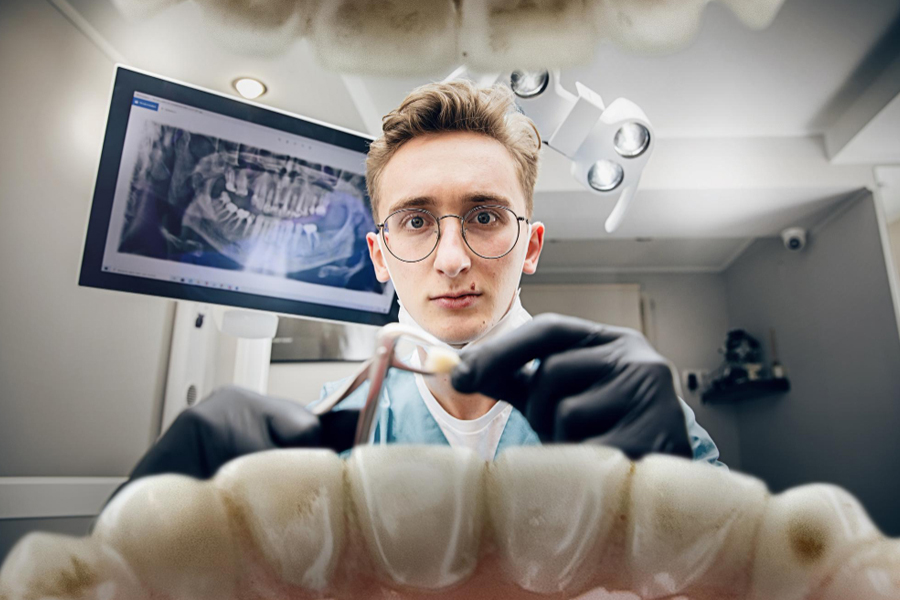
Dental surgery is an integral part of modern dentistry, addressing a wide range of oral health issues that cannot be resolved with standard treatments. From correcting severe dental problems to improving oral functionality and aesthetics, dental surgery plays a critical role in ensuring comprehensive oral care. In this blog, we explore the purpose, types, and recovery process of dental surgery, along with its significant benefits.
Why is Dental Surgery Necessary?
Dental surgery is often required when routine dental care is insufficient to treat or prevent specific conditions. Common reasons for dental surgery include:
- Severe tooth decay or damage.
- Wisdom tooth complications.
- Advanced gum disease.
- Missing teeth that require implants.
- Structural jaw issues affecting speech or bite alignment.
Each procedure is tailored to the patient’s unique needs, aiming to restore oral health, functionality, and confidence.
Common Types of Dental Surgery
- Wisdom Tooth Removal
Impacted wisdom teeth can lead to pain, infection, and crowding. Surgical extraction is often necessary to eliminate these issues. - Dental Implants
Dental implants are a popular solution for replacing missing teeth. This procedure involves placing a metal post into the jawbone, which serves as a foundation for an artificial tooth. - Bone Grafting
When jawbone density is insufficient for implants, bone grafting helps rebuild the bone structure to provide a stable base. - Orthognathic Surgery
This corrective jaw surgery addresses issues like misaligned jaws, improving functionality and appearance. - Periodontal Surgery
For severe gum disease, periodontal surgery removes infected tissue and promotes gum health. - Tooth Repair
In cases of extreme tooth damage due to trauma or decay, dental surgery can restore the tooth or prepare the area for further treatment.
Preparing for Dental Surgery
Proper preparation is essential to ensure a smooth dental surgery experience. Before undergoing the procedure:
- Discuss your medical history with your dentist or surgeon.
- Follow pre-surgery instructions, such as fasting or adjusting medications.
- Arrange transportation if sedation is involved, as you may not be able to drive afterward.
A clear understanding of the procedure can help alleviate anxiety and set realistic expectations for recovery.
The Recovery Process
Post-surgery care is just as crucial as the procedure itself. The recovery timeline varies depending on the type of dental surgery, but these general tips can aid in healing:
- Rest and avoid strenuous activity for a few days.
- Manage swelling and discomfort with prescribed painkillers and cold compresses.
- Maintain oral hygiene as directed, but avoid disturbing the surgical site.
- Stick to a soft food diet and stay hydrated.
- Attend follow-up appointments to monitor healing progress.
Adhering to these guidelines will reduce the risk of complications and promote a quicker recovery.
The Benefits of Dental Surgery
Undergoing dental surgery may seem daunting, but the benefits are profound and long-lasting:
- Pain Relief: Addressing problematic teeth or gums eliminates chronic pain.
- Improved Functionality: Surgeries like implants and jaw corrections restore chewing, speaking, and overall oral functionality.
- Enhanced Aesthetics: Cosmetic surgeries improve the appearance of the smile, boosting confidence.
- Long-Term Oral Health: Treating infections or structural issues prevents further complications.
Conclusion
Dental surgery is a vital tool in modern dentistry, offering solutions to complex oral health issues. Whether it’s addressing severe decay, replacing missing teeth, or correcting jaw alignment, dental surgery enhances both health and quality of life. By working with a trusted dental professional and following post-operative care instructions, patients can achieve remarkable results that last a lifetime.
If you’re considering dental surgery, consult with your dentist to explore the best options for your specific needs and take the first step toward a healthier, more confident smile.